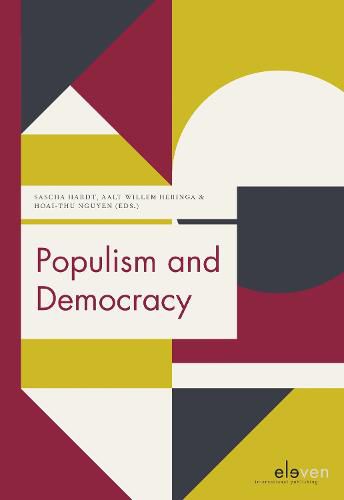Readings Newsletter
Become a Readings Member to make your shopping experience even easier.
Sign in or sign up for free!
You’re not far away from qualifying for FREE standard shipping within Australia
You’ve qualified for FREE standard shipping within Australia
The cart is loading…






This title is printed to order. This book may have been self-published. If so, we cannot guarantee the quality of the content. In the main most books will have gone through the editing process however some may not. We therefore suggest that you be aware of this before ordering this book. If in doubt check either the author or publisher’s details as we are unable to accept any returns unless they are faulty. Please contact us if you have any questions.
Are liberal democracies in decline? If they are, what role does populism play in this? What can and should democracies do to defend their core features against ‘democratic decay’? And which features can be considered essential? These are difficult questions further complicated by the realisation that their answers depend on perspective. Populism and democratic decay are global phenomena but they play out differently in different countries and regions. They also cannot be properly understood through the lens of one discipline alone. This book brings together scholars of political science and law, who look at populism, democratic decay, and possible means to protect democratic constitutionalism from global, regional (European) and national angles.
The book is made up of two parts. The first part discusses general aspects of populism. The second part of the book consists of seven country reports and one regional report; each analysing the success or failure of national constitutional safeguards against populism in the local constitutional and socio-political context. From East-Central Europe to the United Kingdom, from Italy to the Philippines, the pictures painted in these articles are diverse, yet enlightening and relevant from a comparative perspective.
This volume is part of a research project on populism and democracy conducted at Maastricht University, Faculty of Law, and funded by the Statesman Thorbecke Fund at the Dutch Royal Academy of Sciences (knaw).
$9.00 standard shipping within Australia
FREE standard shipping within Australia for orders over $100.00
Express & International shipping calculated at checkout
This title is printed to order. This book may have been self-published. If so, we cannot guarantee the quality of the content. In the main most books will have gone through the editing process however some may not. We therefore suggest that you be aware of this before ordering this book. If in doubt check either the author or publisher’s details as we are unable to accept any returns unless they are faulty. Please contact us if you have any questions.
Are liberal democracies in decline? If they are, what role does populism play in this? What can and should democracies do to defend their core features against ‘democratic decay’? And which features can be considered essential? These are difficult questions further complicated by the realisation that their answers depend on perspective. Populism and democratic decay are global phenomena but they play out differently in different countries and regions. They also cannot be properly understood through the lens of one discipline alone. This book brings together scholars of political science and law, who look at populism, democratic decay, and possible means to protect democratic constitutionalism from global, regional (European) and national angles.
The book is made up of two parts. The first part discusses general aspects of populism. The second part of the book consists of seven country reports and one regional report; each analysing the success or failure of national constitutional safeguards against populism in the local constitutional and socio-political context. From East-Central Europe to the United Kingdom, from Italy to the Philippines, the pictures painted in these articles are diverse, yet enlightening and relevant from a comparative perspective.
This volume is part of a research project on populism and democracy conducted at Maastricht University, Faculty of Law, and funded by the Statesman Thorbecke Fund at the Dutch Royal Academy of Sciences (knaw).